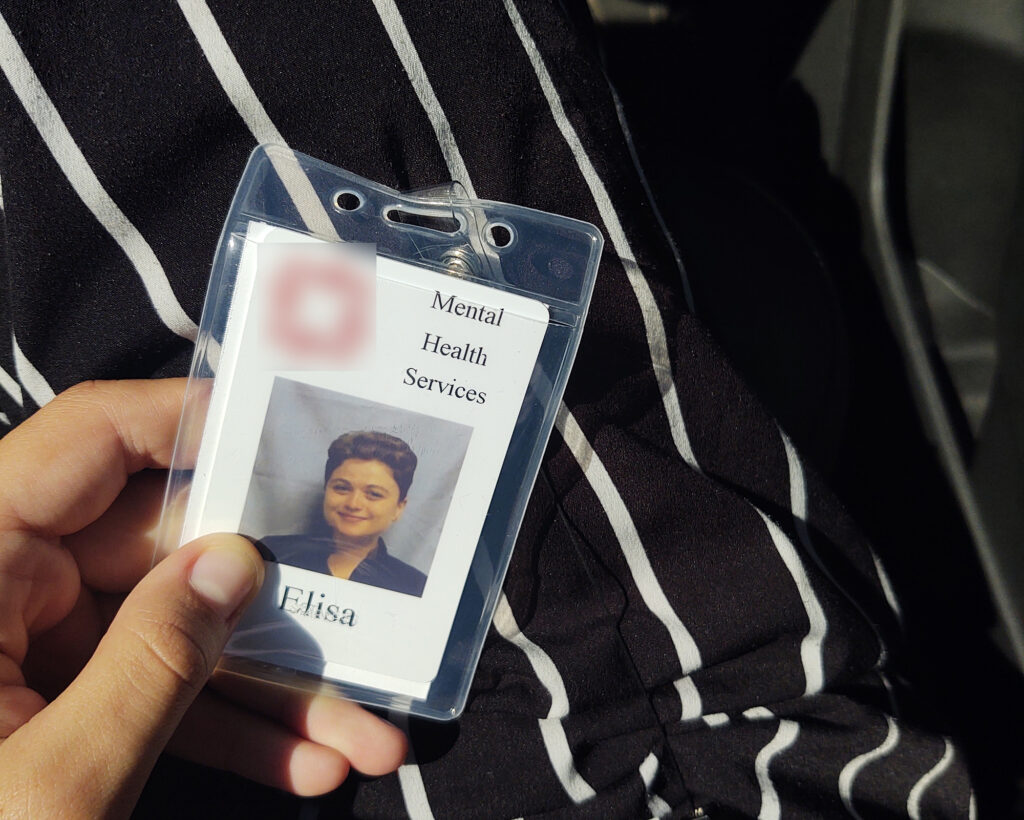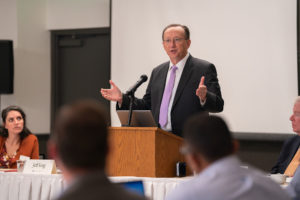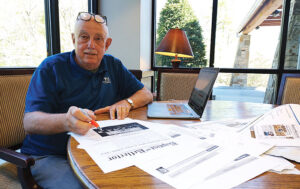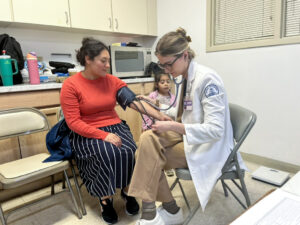
SPRINGFIELD, Ohio (BP) – Recent Cedarville University graduate Elisa Owens is already hard at work helping struggling youth through the social work field, despite enduring her own severe mental health challenges during her college years.
Now working as a youth mental health case manager in Springfield, Ohio, Owens is grateful to be in a better place in her personal life, so she can help others get there.
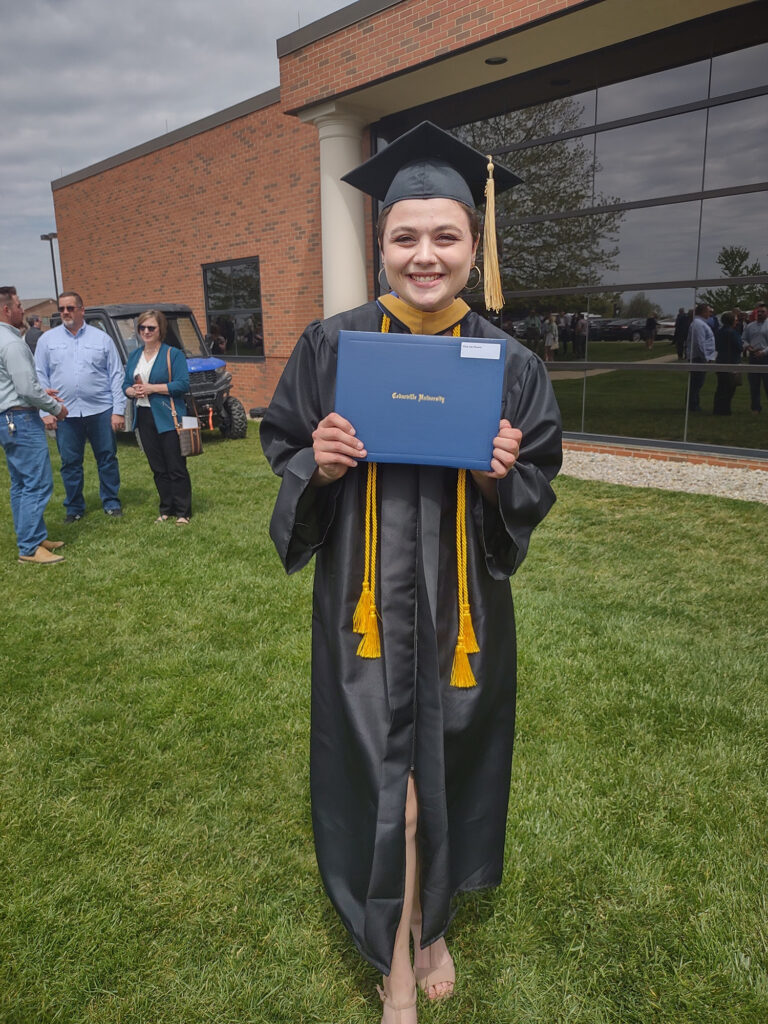
“I’m very thankful that I went through everything that I did,” Owens said.
“Working with clients who are suicidal or have panic attacks, I don’t always tell them that I’ve been there … but I can help them put some of their feelings into words and sometimes I can see in their face that nobody’s ever really understood how it felt before.”
Owens celebrated finishing her studies at Cedarville (affiliated with the State Convention of Baptists in Ohio) at graduation in early May. Yet, two years earlier she was in the hospital receiving treatment for her mental health.
“The third time of being on the verge of an attempt (of suicide), and doing something that could have ended my life my resident director made the call that I needed to go to the hospital,” Owens said.
“I kept getting closer and closer to actually ending my life. At this point, I had done things that if it had gone a different way, I would be dead. I was admitted to in-patient hospitalization, which I was terrified of.”
Owens struggles with mental health began with the start of the COVID-19 pandemic.
Owens, like most university students, was sent home mid-way through the spring 2020 semester. It was her freshman year, and she had just changed her major to social work based on a professor’s recommendation.
She began working at a residential facility for teenage girls with criminal charges.
“I loved it, even though it was exhausting and it was difficult, I loved it,” Owens said. “It was just a confirmation that social work is where I should be.”
But soon there were challenges.
“I would just sleep and work. I wouldn’t do much else. I started to feel very numb and just very isolated. Because of my chronic illness, I was very cautious with COVID and so was my family.
“I just felt very alone. I was missing that aspect of community that I was so used to at Cedarville.”
Coming back for her sophomore year, Owens continued to experience these same feelings, and by the beginning of her junior year things took a turn for the worse.
“The end of my sophomore year I was just so drained,” Owens said.
“I was working full-time over the summer, but any time I was home I was in my room whether I was sleeping or just lying in bed staring at a wall. I just had no motivation to do anything. I wasn’t eating very much. My parents were asking me a lot of questions.
“Coming back that fall, I got COVID the first week of classes. I was all by myself the entire first week. I ended up having panic attacks very regularly. It felt like I was going insane. I couldn’t contain the way that I felt and I couldn’t explain it to anyone. From that point on, things just continued to go downhill.”
Owens said she experienced increased anxiety, called in sick to work frequently and instead of her normal social butterfly personality she “kind of disappeared that whole year.”
She began down a road of severe symptoms such as self-harm and suicidal ideation, which led to her trip to the hospital.
“That hospital trip was very difficult, but it was also a very big turning point,” Owens said.
Senior year began to bring light in the darkness for Owens.
Her medication was adjusted, she continued to get counseling and build up a “safe” group of people around her like her family, a small group of friends and her boyfriend.
As she prepares for the LSW (licensed social worker) exam, Owens said she is thankful for the role Cedarville played in her recovery.
“I’m very thankful that I went to Cedarville, and I wouldn’t change it for the world,” Owens said.
“My advisor, Professor Huff, would sit with me and pray with me and I knew that I could go to him with anything. That was really helpful.
“Once I got in counseling services it was very helpful. I didn’t realize how good he (her counselor) was at his job until I left Cedarville and tried to find other counselors.”
Owens said with the epidemic of isolation and loneliness going on in the country, it is important for Christians to approach those struggling with discernment.
“If you’re talking with somebody who is struggling with mental health or mental illness, pray over the conversation beforehand and trust that the Holy Spirit is going to guide your words and your actions,” Owens said.
“When Jesus was here on earth, He didn’t just preach to people. He healed people, and He showed love to people. I think that’s important to remember too … you can show Jesus’ love to them just by being somebody who reaches out and checks in on them. I think that is just as much living out the Gospel as it is to share Scripture with somebody, depending on the circumstance.”
She stressed the important role churches can play in providing needed support to those struggling with mental health.
“Social support is just really lacking,” Owens said.
“As a church something to keep in mind is if you run into somebody who seems like they need some support … provide that support that so many people are lacking in their lives.”
